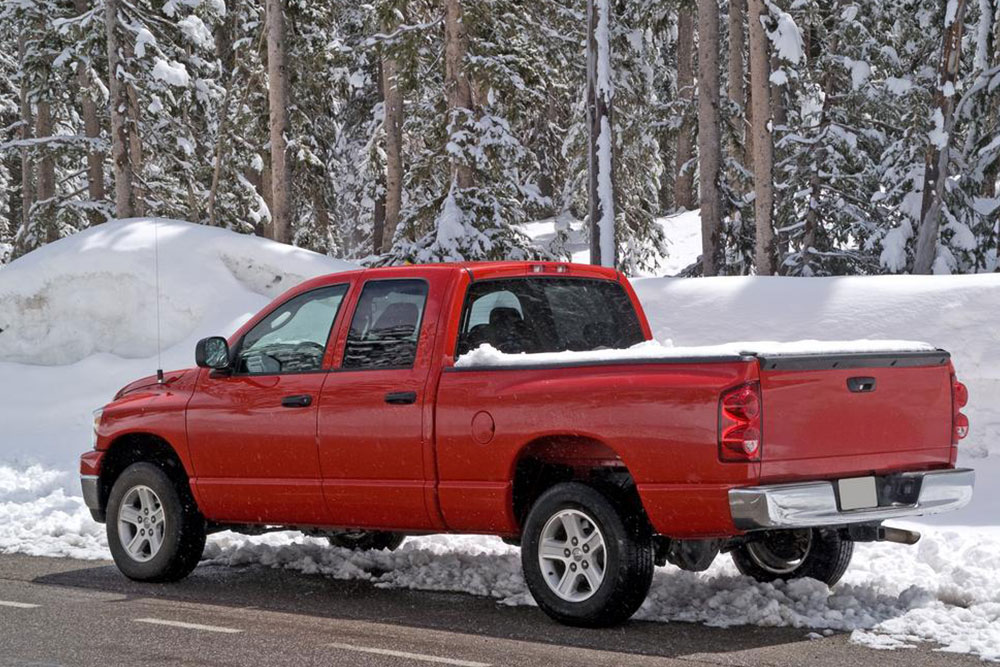Comprehensive Guide to Purchasing a Used Pickup Truck: Tips, Checks, and Common Mistakes
This detailed guide provides essential tips for buying a used pickup truck, emphasizing thorough inspection, research, and negotiation strategies. Learn how to avoid common pitfalls and ensure you make a smart purchase. Whether for work or leisure, picking the right used truck involves careful preparation and informed decision-making. Detailed steps, expert advice, and practical tips make this article a comprehensive resource for prospective buyers seeking durability, reliability, and value in their used pickup truck acquisition.

Expert Tips and Common Pitfalls When Buying a Pre-Owned Pickup Truck
For individuals in need of a workhorse capable of handling heavy loads, a used pickup truck often presents the most practical and cost-effective solution. These vehicles are renowned for their robustness, ample cargo capacity, and versatility, making them ideal choices for construction workers, farmers, outdoor enthusiasts, and anyone requiring a durable all-purpose vehicle. Unlike passenger cars or minivans, pickup trucks are designed to withstand tough conditions and perform demanding tasks, making them a valuable investment when purchased wisely.
However, buying a used pickup truck is not without challenges. It involves careful scrutiny, research, and strategic negotiation to ensure you get the best possible deal. Whether you're a first-time buyer or experienced in vehicle purchases, knowing the right steps to take can save you money, reduce risks, and help you find a truck that truly meets your needs.
In this comprehensive guide, we delve into essential tips for buying a used pickup truck, highlight common mistakes to avoid, and provide insights that can help you make informed decisions during your purchase journey.
Key Actions for a Successful Purchase
1. Conduct a Thorough Test Drive
One of the most critical steps when purchasing a used pickup truck is to take it for an extensive test drive. This allows you to evaluate the vehicle's general condition, driving comfort, and performance. During the test drive, listen carefully for any unusual noises, rattling sounds, or vibrations that might indicate underlying issues. Pay attention to how smoothly the engine accelerates, whether the transmission shifts seamlessly, and if the brakes respond appropriately. Experiment with different speeds, test the steering responsiveness, and verify the functionality of the clutch (if manual) and other vital controls. A comprehensive test drive helps you detect potential mechanical problems early and ensures that the truck aligns with your driving expectations.
2. Gather Recommendations and Reviews
Word-of-mouth remains a powerful tool. Seek recommendations from friends, family, or colleagues who have purchased used trucks recently. Personal experiences provide valuable insights into trustworthy sellers, reputable dealerships, or reliable private owners. Additionally, browse online forums, review websites, and community groups dedicated to pickups or vehicle buying. This collective wisdom can help you identify sellers known for transparency, fair pricing, and vehicle quality. Remember, a trusted source can significantly reduce your chances of falling prey to scams or buying trucks with hidden defects.
3. Engage a Qualified Mechanic for Inspection
Before finalizing your purchase, hiring a professional mechanic to inspect the vehicle is vital. An experienced technician can assess critical components such as the engine, transmission, suspension, brakes, and electrical systems. They can also identify signs of prior accidents, frame damage, rust, or other issues that might not be immediately visible. A detailed inspection report provides clarity about the truck's true condition, enabling you to negotiate better and avoid future costly repairs. Remember, investing in a professional inspection pays off in the long run by preventing buyer’s remorse and unexpected expenses.
4. Conduct In-Depth Research
Knowledge is power. Before making an offer, thoroughly research your preferred truck models. Investigate the typical costs, known issues, and maintenance requirements. Read owner reviews and expert evaluations to understand the long-term reliability of different makes and models. Additionally, check the reputation of the seller or dealership through online reviews and ratings. Comparing different options gives you leverage during negotiations and ensures you choose a vehicle with good value and dependable performance.
Common Mistakes to Steer Clear Of
1. Excessive Bargaining and Lowball Offers
While negotiation is part of the buying process, making extreme low offers can offend sellers and shut down negotiations prematurely. Aim for a fair deal based on market value, the vehicle’s condition, and your research. Approach negotiations professionally and be willing to compromise to achieve a win-win outcome.
2. Rushing the Decision
Resist the temptation to buy on impulse. Take your time to compare multiple trucks, evaluate their conditions, and assess pricing. A hasty purchase can lead to regrets, especially if you overlook critical flaws or settle for a vehicle that doesn’t fully meet your needs.
3. Ignoring Minor Flaws
Minor cosmetic imperfections like scratches or small electrical glitches are often repairable and shouldn’t automatically disqualify a truck. Focus on the overall functionality and structural integrity rather than being overly fixated on aesthetic issues. Sometimes, accepting minor flaws can lead to significant savings—a wise approach if the truck is otherwise in good condition.
In conclusion, purchasing a used pickup truck can be a rewarding experience when the right steps are followed. By taking the time to test drive, research, inspect, and negotiate appropriately, you can secure a durable, reliable vehicle that meets your needs without breaking the bank. Remember, patience and due diligence are your best tools in finding the perfect used pickup truck to support your personal or professional endeavors.





